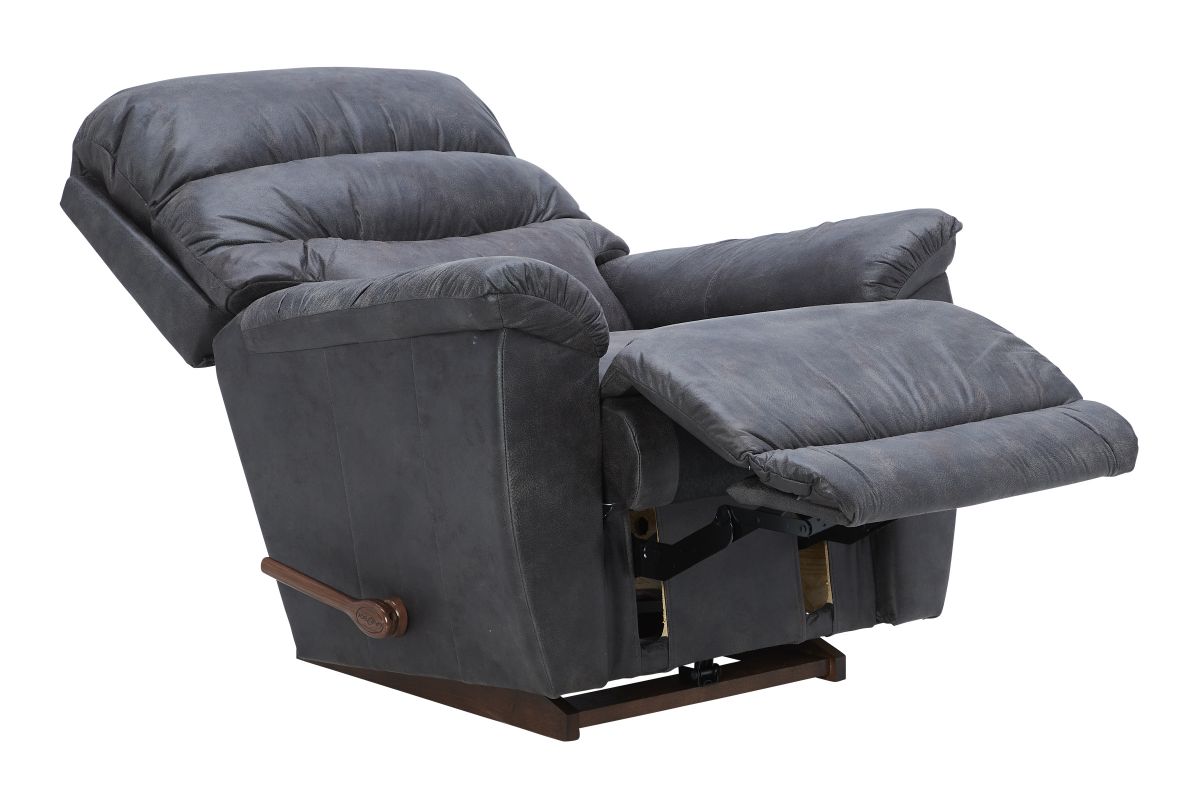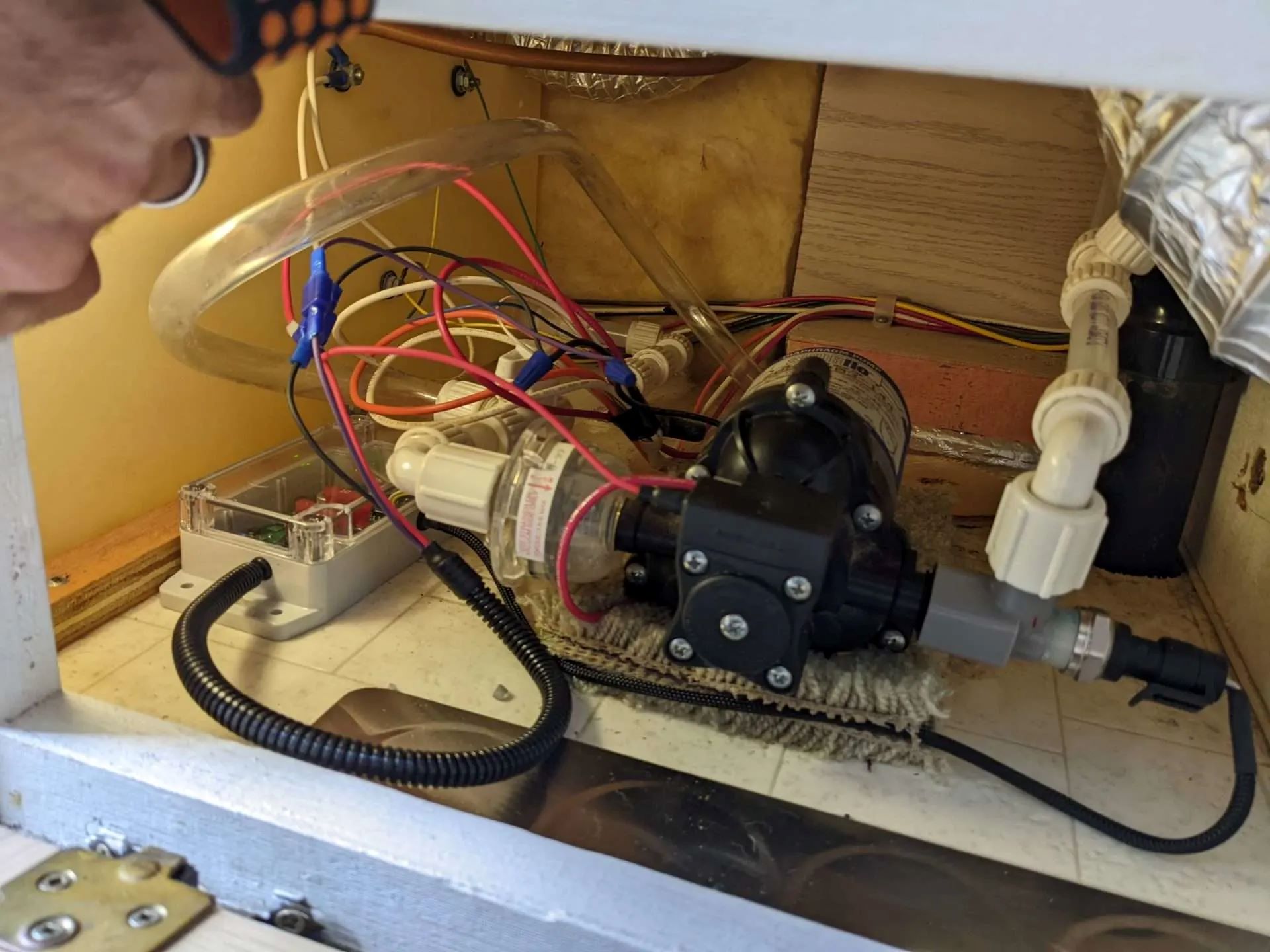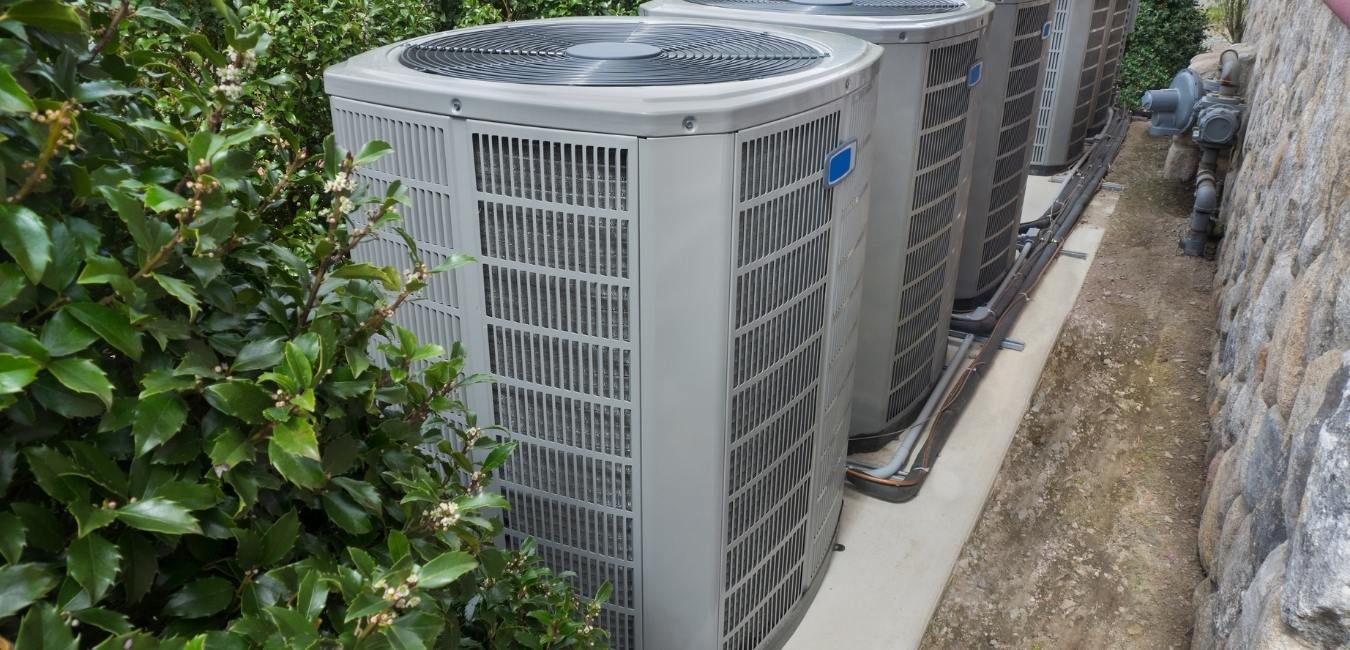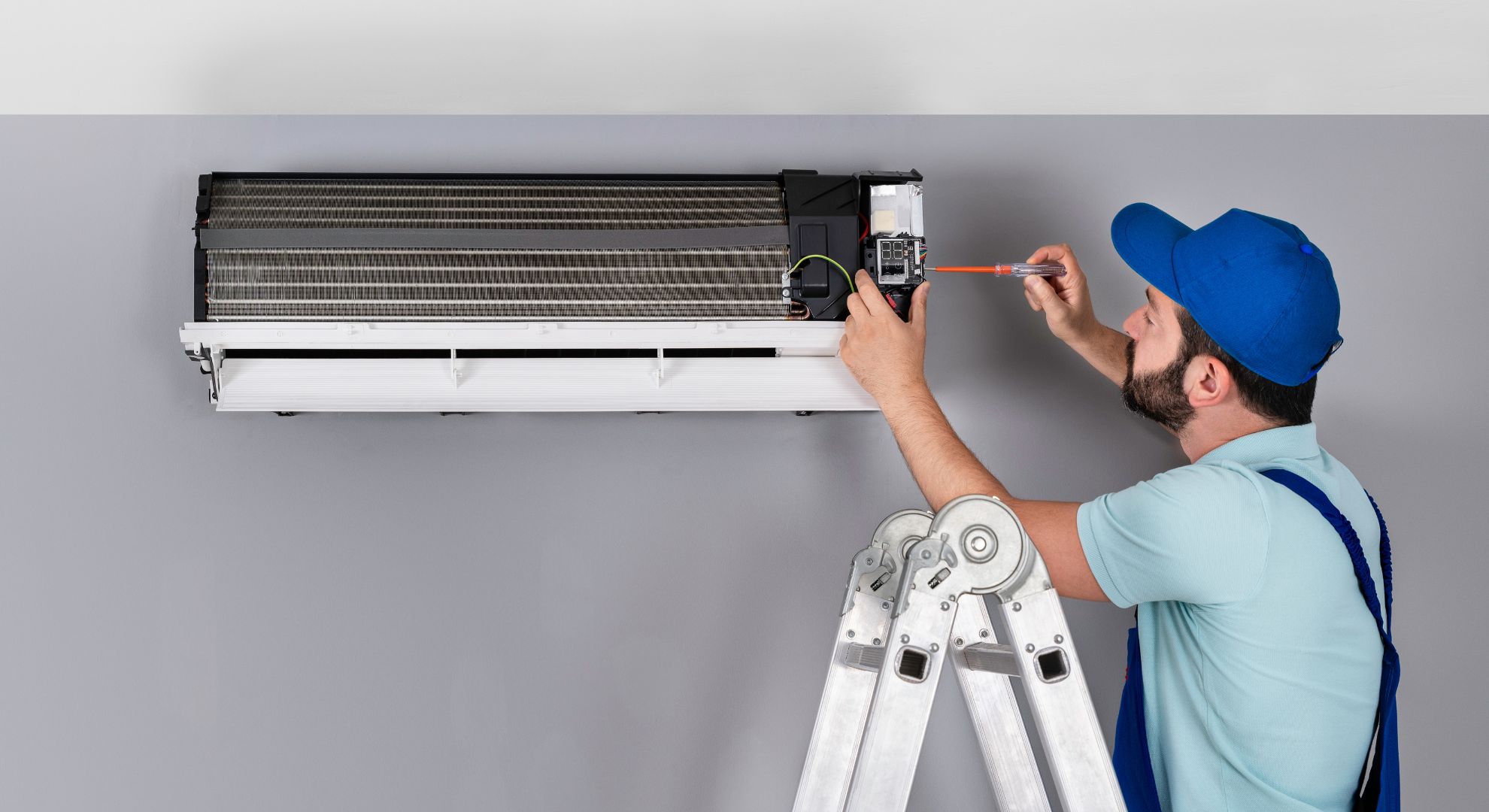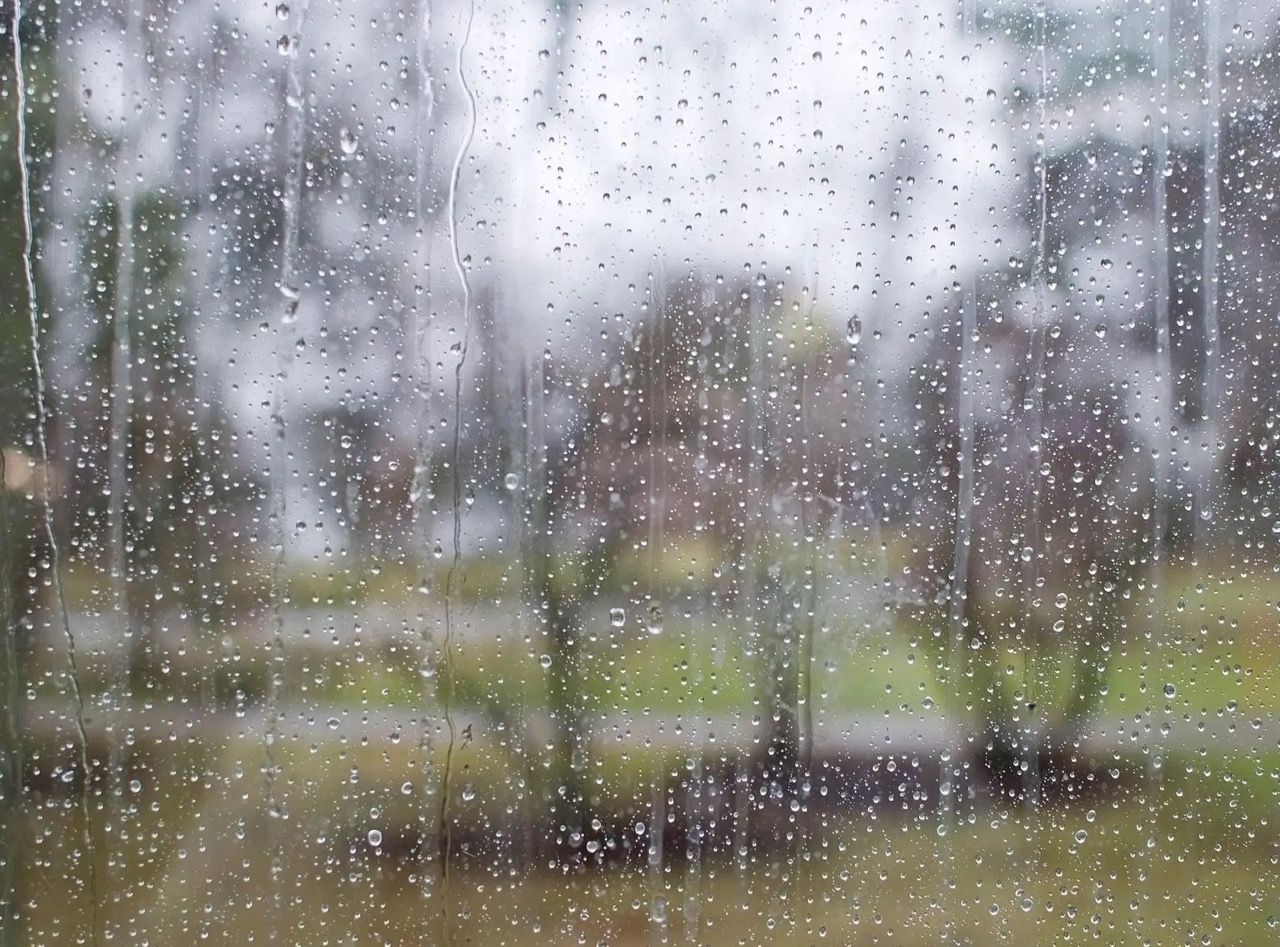Home>Home Maintenance>Why Is My Air Conditioning Unit So Loud
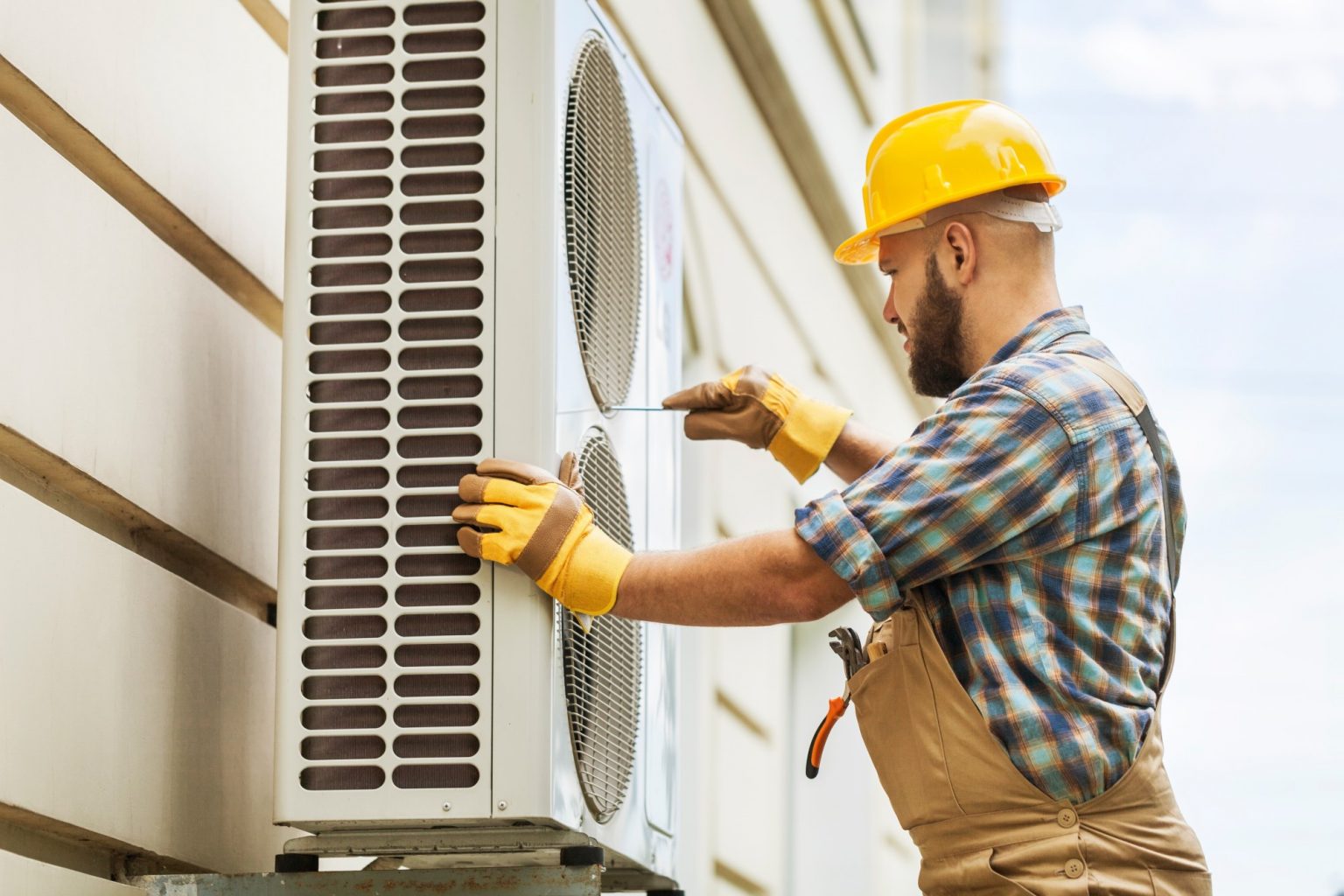

Home Maintenance
Why Is My Air Conditioning Unit So Loud
Modified: March 6, 2024
Is your air conditioning unit making too much noise? Learn why it's happening and how to fix it with proper home maintenance techniques.
(Many of the links in this article redirect to a specific reviewed product. Your purchase of these products through affiliate links helps to generate commission for Storables.com, at no extra cost. Learn more)
Introduction
When it comes to home comfort, air conditioning is a vital component. It keeps us cool during hot summer days and helps maintain a comfortable and enjoyable living environment. However, there is one issue that can significantly impact our comfort, and that is the noise that our air conditioning units can produce. It can be quite frustrating to have a loud air conditioning unit that disturbs our peace and quiet.
In this article, we will explore the reasons why air conditioning units can be so loud and provide practical solutions to address this issue. We will delve into understanding air conditioning noise, common causes of loud units, and ways to reduce the noise to make your home a more tranquil space.
Key Takeaways:
- Regular maintenance and cleaning are essential to reduce air conditioning noise. Cleaning or replacing air filters, lubricating moving parts, and scheduling professional maintenance can keep your unit running quietly and effectively.
- Upgrading to a quieter air conditioning unit with noise-reduction technology can create a more peaceful environment. Look for models with lower noise ratings and features designed to minimize vibrations and noise for a quieter home.
Read more: Why Is My AC So Loud Inside My House
Understanding Air Conditioning Noise
Before we dive into the causes and solutions, it’s essential to understand the sources of air conditioning noise. Air conditioning units consist of various components, including compressors, fans, motors, and coils. These components work together to cool the air and circulate it throughout your home. However, as with any machinery, they generate vibrations, which can result in noise.
The level of noise produced by an air conditioning unit is typically measured in decibels (dB). The higher the dB rating, the louder the unit. Keep in mind that different models and brands of air conditioning units will have varying noise levels. Some units are designed to operate quietly, while others may produce more noticeable noise. It’s important to consider the noise level when purchasing a new unit or addressing noisy issues with your existing one.
Common Causes of Loud Air Conditioning Units
Now let’s explore the common reasons why your air conditioning unit might be producing excessive noise:
-
Inadequate Insulation
Poor insulation around the air conditioning system can contribute to noise transmission. When the unit vibrates against walls, ceilings, or floors, it can create loud and disturbing sounds. Insufficient insulation not only allows noise to penetrate through but can also impact the overall energy efficiency of your home.
-
Dirty or Clogged Air Filters
Dirty or clogged air filters can hinder proper airflow through the system, causing the unit to work harder and generate more noise. When dust, debris, and pollutants accumulate in the filters, the airflow becomes restricted, leading to increased vibration and noise.
-
Read more: Why Is The Air Conditioner So Loud
Loose or Damaged Parts
Over time, the various components of an air conditioning unit can become loose or damaged. Loose fan blades, worn-out belts, or damaged motor mounts can result in excessive noise. These issues require prompt attention to prevent further damage to the unit and restore its proper functioning.
-
Improper Unit Installation
If your air conditioning unit was not installed correctly, it can lead to unwanted noise. Improperly secured or unbalanced components can cause excessive vibrations, resulting in loud operational noise. Ensuring professional installation can address these issues and provide a quieter cooling experience.
-
Age and Wear
As air conditioning units age, their components can naturally wear down, leading to increased noise levels. Parts such as bearings, motors, and fans can become less efficient, causing the unit to produce more noise during operation. In some cases, it may be more cost-effective to replace an older unit with a newer, quieter model.
Key Takeaways:
- Regular maintenance and cleaning are essential to reduce air conditioning noise. Cleaning or replacing air filters, lubricating moving parts, and scheduling professional maintenance can keep your unit running quietly and effectively.
- Upgrading to a quieter air conditioning unit with noise-reduction technology can create a more peaceful environment. Look for models with lower noise ratings and features designed to minimize vibrations and noise for a quieter home.
Read more: Why Is My AC So Loud Inside My House
Understanding Air Conditioning Noise
Before we delve into the common causes of loud air conditioning units, it’s essential to understand the sources of air conditioning noise. Air conditioning units consist of various components such as compressors, fans, motors, and coils, all of which contribute to the cooling process and the circulation of air throughout your home. However, as with any machinery, these components produce vibrations that can result in noise.
When an air conditioning unit is running, vibrations are generated due to the movement and rotation of its internal parts. These vibrations are transmitted to the surrounding surfaces of your home, including walls, ceilings, and floors, causing them to vibrate as well. This vibration results in the noise that you hear.
The noise produced by an air conditioning unit can vary in intensity and frequency. It is typically measured in decibels (dB), with a higher dB rating indicating a louder unit. Different models and brands of air conditioning units have varying noise levels, so it’s important to consider this factor when purchasing a new unit or addressing noise issues with your existing one.
Furthermore, it’s worth noting that certain factors can contribute to the perception of noise. For example, a quiet unit situated in a small room may seem louder due to sound reflections off the walls. On the other hand, a louder unit located in a large room may not be as noticeable due to the sound dispersing over a larger area.
Environmental factors can also affect the perception of air conditioning noise. For instance, a quiet unit may seem louder if you live in a relatively quiet neighborhood, while the same unit might go unnoticed in a noisy urban environment with constant background noise.
To assess whether your air conditioning unit is too loud, consider the following:
- Noise Level: Compare the noise level of your unit to the manufacturer’s specifications or other similar models. If it exceeds the recommended noise level, it may require attention.
- Disturbance: Evaluate how much the noise from your air conditioning unit disrupts your daily activities, such as sleep, relaxation, or work. If the noise is consistently bothersome, it is worth seeking solutions to reduce it.
- Change in Noise: If you notice a sudden or significant increase in noise from your air conditioning unit, it could be indicative of a specific issue that needs to be addressed.
Understanding the basics of air conditioning noise and assessing its impact on your daily life will help you determine the best course of action to make your home a more comfortable and peaceful environment.
Common Causes of Loud Air Conditioning Units
There are several common causes that can contribute to a loud air conditioning unit. Identifying these causes will help you diagnose the issue and find an appropriate solution. Here are the most frequent culprits:
-
Inadequate Insulation
Poor insulation around the air conditioning system can contribute to noise transmission. When the unit vibrates against walls, ceilings, or floors, it can create loud and disturbing sounds. Insufficient insulation not only allows noise to penetrate through but can also impact the overall energy efficiency of your home. Adding insulation around the unit or using sound-dampening materials can help reduce the noise levels.
-
Dirty or Clogged Air Filters
Dirty or clogged air filters can hinder proper airflow through the system, causing the unit to work harder and generate more noise. When dust, debris, and pollutants accumulate in the filters, the airflow becomes restricted, leading to increased vibration and noise. Regularly cleaning or replacing air filters is essential to maintain optimal airflow and reduce noise caused by a struggling unit.
-
Read more: Why Is The Air Conditioner So Loud
Loose or Damaged Parts
Over time, the various components of an air conditioning unit can become loose or damaged. Loose fan blades, worn-out belts, or damaged motor mounts can result in excessive noise. These issues require prompt attention to prevent further damage to the unit and the restoration of proper functioning. Tightening loose components or replacing damaged parts can help eliminate the unwanted noise.
-
Improper Unit Installation
If your air conditioning unit was not installed correctly, it can lead to unwanted noise. Improperly secured or unbalanced components can cause excessive vibrations, resulting in loud operational noise. Additionally, improper ductwork installation or sizing can contribute to noise issues. Ensuring professional installation can address these issues and provide a quieter cooling experience.
-
Age and Wear
As air conditioning units age, their components can naturally wear down, leading to increased noise levels. Parts such as bearings, motors, and fans can become less efficient, causing the unit to produce more noise during operation. In some cases, it may be more cost-effective to replace an older unit with a newer, quieter model. Regular maintenance and timely replacement of worn-out parts can help reduce the noise associated with aging units.
By understanding these common causes, you can take the necessary steps to address the noise issues in your air conditioning unit. Regular maintenance, prompt repairs, proper installation, and periodic replacements can all contribute to a quieter and more enjoyable cooling experience in your home.
Inadequate Insulation
Poor insulation around your air conditioning system can be a major contributor to the noise it produces. When your unit vibrates against walls, ceilings, or floors, it can create loud and disturbing sounds that resonate throughout your home. Inadequate insulation not only allows noise to penetrate through, but it can also impact the overall energy efficiency of your living space.
To address the issue of inadequate insulation, there are several steps you can take:
- Add Insulation: Insulating the area around your air conditioning unit can help reduce noise transmission. This can be done by applying insulation material, such as foam or mass-loaded vinyl, to the walls, ceiling, or floor around the unit. This insulation layer acts as a barrier to absorb and dampen the vibrations, minimizing the noise that reaches the living areas of your home.
- Seal Gaps and Cracks: Inspect the area around your air conditioning unit for any gaps or cracks that may be contributing to noise leakage. Seal these openings with caulk or weatherstripping to prevent vibrations from escaping and disturbing your home’s tranquility.
- Install Acoustic Panels: Acoustic panels are specifically designed to absorb sound waves and reduce noise. These panels can be installed on the walls or ceiling near your air conditioning unit to help dampen the noise. Acoustic panels come in various sizes, shapes, and colors, allowing you to choose a design that blends seamlessly with your home’s aesthetics.
- Use Sound-Dampening Materials: Another effective solution is to use sound-dampening materials specifically designed to reduce noise transmission. These materials can be placed around or beneath the air conditioning unit to absorb vibrations and minimize the noise produced. Examples of sound-dampening materials include anti-vibration pads, rubber mats, and soundproof blankets.
By addressing inadequate insulation, you can significantly reduce the noise produced by your air conditioning unit. Not only will this enhance your comfort by creating a quieter environment, but it will also prevent noise disturbances for both you and your neighbors.
Dirty or Clogged Air Filters
Dirty or clogged air filters can be a common cause of excessive noise in air conditioning units. Air filters play a crucial role in maintaining the quality of indoor air by capturing dust, allergens, and other particles. Over time, these filters can become filled with dirt and debris, restricting the airflow and causing the unit to work harder. This increased strain can lead to vibrations and louder operation, resulting in a noisy air conditioning unit.
To resolve the issue of dirty or clogged air filters and reduce the noise level of your unit, follow these steps:
- Regular Filter Cleaning or Replacement: It is crucial to clean or replace your air filters regularly. Check your unit’s manual or consult with a professional to determine the recommended cleaning or replacement frequency. Typically, filters should be cleaned or replaced every one to three months. Cleaning involves gently vacuuming or rinsing the filters with water, while replacement requires installing new filters.
- Choose High-Quality Filters: When selecting new air filters, opt for high-quality filters designed to trap a wide range of particles effectively. These filters can help maintain optimal airflow and reduce the strain on your unit, ultimately minimizing the noise it produces. Look for filters with a high MERV (Minimum Efficiency Reporting Value) rating, as they have better filtration capabilities.
- Maintain a Clean Environment: Keeping the area around your air conditioning unit clean can help prevent debris from entering the system and clogging the filters. Regularly dust and vacuum the surrounding area to minimize the accumulation of dirt and contaminants that can contribute to clogged filters and noisy operation.
Regular maintenance of your air filters not only improves the air quality in your home but also helps your unit operate more efficiently and quietly. Clean filters allow for better airflow, reducing the strain on the system and minimizing vibrations and noise.
By following these steps and adopting a proactive approach to filter maintenance, you can ensure that your air conditioning unit runs smoothly and quietly, providing you with the comfort you desire without the disruption of excessive noise.
Read more: Why Is My Laptop Fan So Loud
Loose or Damaged Parts
Loose or damaged parts in your air conditioning unit can be a significant cause of excessive noise. Over time, certain components may become loose or worn out, leading to vibrations and rattling sounds. If left unaddressed, these issues can worsen over time and potentially cause further damage to your unit.
To address the issue of loose or damaged parts and reduce the noise produced by your air conditioning unit, consider the following steps:
- Tighten or Replace Loose Fan Blades: Fan blades that are loose or misaligned can create a significant amount of noise when in operation. Carefully inspect the fan blades and tighten any loose screws or bolts. If the blades are damaged or worn out, consider replacing them to restore smooth and quiet operation.
- Inspect and Replace Worn-out Belts: The belts inside your air conditioning unit can wear out over time, causing them to slip or create friction against other components. This can result in squealing or screeching noises. Regularly inspect the belts for signs of wear and replace them if necessary. It’s important to follow the manufacturer’s instructions or consult with a professional when replacing belts to ensure proper installation.
- Check and Secure Motor Mounts: The motor mounts of your air conditioning unit help stabilize the motor and reduce vibration. If these mounts become loose or damaged, they can allow excessive movement and cause increased noise. Inspect the motor mounts and tighten or replace them as needed to ensure proper stability and reduce vibrations.
- Address Damaged or Faulty Compressor: The compressor is a crucial component of your air conditioning unit. If the compressor is damaged or malfunctioning, it can produce loud and unusual noises during operation. In such cases, it is best to contact a professional HVAC technician to diagnose and repair the issue.
- Regular Maintenance: Regular maintenance of your air conditioning unit is essential to prevent loose or damaged parts from causing excessive noise. Schedule annual maintenance visits with a professional technician to inspect and service your unit, ensuring that all components are in good working condition.
By addressing loose or damaged parts promptly, you can prevent further damage to your air conditioning unit and restore its smooth and quiet operation. Regular maintenance and timely repairs are vital to keeping your unit running efficiently and providing a peaceful and comfortable environment in your home.
Improper Unit Installation
Improper installation of your air conditioning unit can be a significant factor contributing to excessive noise. When the unit is not installed correctly, it can result in unbalanced or loosely secured components, leading to vibrations and noisy operation. Additionally, insufficient or improper ductwork installation can further amplify noise issues.
To address the issue of improper unit installation and reduce the noise produced by your air conditioning unit, consider the following steps:
- Hire a Professional Installer: If you suspect that your air conditioning unit was not installed properly, it’s highly recommended to seek the assistance of a professional HVAC technician. They have the expertise and knowledge to assess the installation and make necessary adjustments or corrections to ensure proper alignment and secure connections.
- Inspect and Adjust Unbalanced Components: Vibrations and noise can occur if certain components of your air conditioning unit are unbalanced. Inspect the fan blades, compressor, and other moving parts to check for any signs of imbalance. A professional technician can make the necessary adjustments to ensure proper balance, reducing vibrations and noise during operation.
- Ensure Proper Ductwork Installation: Proper installation and insulation of ductwork are critical to minimize noise transmission from the air conditioning unit. Inspect the ductwork for any gaps, leaks, or loose connections. Sealing these areas with appropriate duct tape or mastic can help reduce noise caused by air leaks or vibrations traveling through the ducts.
- Consider Sound-Dampening Measures: If the noise issue persists even after addressing installation problems, you can explore additional sound-dampening measures. For example, installing insulation around the ductwork, using acoustic duct liners, or adding soundproof barriers can help minimize noise transmission and create a quieter environment.
Proper installation of your air conditioning unit is crucial to ensure optimal performance and minimize noise. By taking the necessary steps to address installation issues, you can significantly reduce the noise produced by your unit and enjoy a more peaceful and comfortable indoor environment.
Age and Wear
As air conditioning units age, their components can naturally wear down, leading to increased noise levels. Parts such as bearings, motors, and fans can become less efficient over time, causing the unit to produce more noise during operation. In some cases, it may be more cost-effective to replace an older unit with a newer, quieter model.
To address the issue of noise caused by age and wear in your air conditioning unit, consider the following steps:
- Regular Maintenance: Performing regular maintenance on your air conditioning unit can improve its overall performance and help reduce noise. This includes cleaning or replacing air filters, lubricating moving parts, and ensuring proper airflow. Regular maintenance can extend the lifespan of your unit and keep it running efficiently.
- Timely Replacement of Worn-out Parts: As components in your air conditioning unit wear out, it’s important to replace them promptly. Worn-out bearings, motors, or fan blades can cause increased vibration and noise. Consult with a professional HVAC technician to determine which parts need replacement and ensure that they are installed correctly.
- Consider Upgrading to a Newer Model: If your air conditioning unit is significantly older and continuously producing excessive noise, it may be worth considering an upgrade to a newer, quieter model. Newer units are designed with advanced technology to provide more efficient and quieter operation. Consult with a professional to explore your options and choose a model that fits your needs and budget.
Regular maintenance and timely replacement of worn-out parts are essential for minimizing the noise associated with aging air conditioning units. However, there comes a point where the ongoing noise issues and potential costly repairs may make it more practical to invest in a new unit that offers improved efficiency and quieter operation.
By addressing age-related wear and tear, you can enjoy a quieter and more comfortable cooling experience in your home while ensuring the efficient operation of your air conditioning system.
Ways to Reduce Air Conditioning Noise
Excessive noise from an air conditioning unit can be bothersome and disrupt the tranquility of your home. Fortunately, there are several effective ways to reduce air conditioning noise and create a quieter environment. Here are some strategies you can implement:
- Regular Maintenance and Cleaning: Regular maintenance and cleaning of your air conditioning unit can significantly reduce noise levels. This includes cleaning or replacing air filters, lubricating moving parts, and ensuring proper airflow. Dust, debris, and clogged filters can hinder airflow and lead to increased vibration and noise. Keeping your unit clean and well-maintained helps it operate more efficiently and quietly.
- Upgrade to a Quieter Unit: If your existing air conditioning unit consistently produces excessive noise, consider upgrading to a newer, quieter model. Look for units with a low noise rating (measured in decibels) and advanced noise-reduction technology. Many manufacturers now offer air conditioning units specifically designed to operate silently or at significantly reduced noise levels.
- Soundproofing Techniques: Implementing soundproofing techniques can help minimize noise transmission from your air conditioning unit. Soundproofing materials, such as acoustic panels, mass-loaded vinyl, or sound-dampening curtains, can be installed in the surrounding area to absorb and block sound waves. Additionally, sealing gaps or cracks in walls, ceilings, or floors can prevent noise leakage into other parts of your home.
- Ensure Proper Installation: Improper installation can contribute to noisy operation. If you suspect that your air conditioning unit was not installed correctly, consult with a professional HVAC technician to assess and rectify any installation issues. Properly securing components, balancing the unit, and ensuring proper ductwork installation can significantly reduce vibration and noise.
- Strategic Placement: Consider the placement of your air conditioning unit to minimize noise impact. If possible, locate the unit in an area away from living spaces, such as the basement, garage, or an outdoor enclosure. Additionally, if you have multiple units, you may want to strategically position them to distribute the noise more evenly throughout your home.
By implementing these strategies, you can significantly reduce the noise produced by your air conditioning unit and enjoy a more peaceful and comfortable living environment. Remember, regular maintenance, proper installation, and strategic soundproofing are key to minimizing noise and ensuring the efficient and quiet operation of your air conditioning system.
Read more: Why Is My HVAC Fan So Loud
Regular Maintenance and Cleaning
Regular maintenance and cleaning of your air conditioning unit are essential for reducing noise levels and ensuring its efficient operation. Neglecting maintenance can lead to a buildup of dust, debris, and contaminants, causing the unit to work harder and produce more noise. Implementing a regular maintenance routine can help keep your air conditioning unit running quietly and effectively. Here are some key aspects to consider:
- Clean or Replace Air Filters: Air filters play a crucial role in removing pollutants and maintaining optimal airflow. Over time, these filters can become clogged with dirt and dust, restricting airflow and causing the unit to work harder. Regularly cleaning or replacing the air filters ensures proper airflow, reduces strain on the system, and minimizes noise generated by a struggling unit.
- Lubricate Moving Parts: The moving parts of your air conditioning unit, such as fan blades and motors, need proper lubrication to operate smoothly and quietly. Over time, friction can occur, resulting in increased noise levels. Regularly lubricating these components as recommended by the manufacturer can help reduce vibrations and noise caused by friction.
- Check and Tighten Loose Components: Vibrations and noise can occur if certain components of your unit become loose over time. Check and tighten any loose screws, bolts, or connections. Securing these components ensures proper alignment, reduces vibrations, and minimizes noise during operation.
- Inspect and Clean Condenser Coils: Condenser coils, located in the outdoor unit of your air conditioning system, can become dirty and hinder heat transfer. This can lead to reduced efficiency and increased noise. Regularly inspecting and cleaning the condenser coils helps maintain optimal performance and noise reduction.
- Schedule Professional Maintenance: It is highly recommended to schedule annual professional maintenance visits for your air conditioning unit. A qualified HVAC technician can perform a thorough inspection and cleaning, identify any potential issues, and ensure optimal performance. They can also make recommendations for noise reduction specific to your unit and address any maintenance tasks that require specialized knowledge or tools.
Regular maintenance and cleaning not only reduce noise levels but also enhance the overall efficiency and lifespan of your air conditioning unit. By implementing a consistent maintenance routine and seeking professional help when necessary, you can keep your unit operating quietly and effectively, providing a more comfortable and peaceful environment in your home.
Upgrade to a Quieter Unit
If your current air conditioning unit consistently produces excessive noise, upgrading to a quieter model can be a worthwhile investment. Advances in technology have led to the development of air conditioning units designed to operate silently or at significantly reduced noise levels. Upgrading to a quieter unit can bring several benefits. Here’s what you need to know:
- Low Noise Rating: When shopping for a new air conditioning unit, look for the noise rating, typically measured in decibels (dB). The lower the noise rating, the quieter the operation. Aim for a model with a lower noise rating to ensure a more peaceful environment in your home.
- Noise-Reduction Technology: Many modern air conditioning units come equipped with noise-reduction technology. These features are designed to minimize vibrations, eliminate noise from components, and provide a quieter cooling experience. Look for units that specifically advertise noise-reduction technology or features such as sound-dampening insulation, vibration dampeners, or variable speed compressors.
- Energy Efficiency: Upgrading to a newer, quieter unit often means taking advantage of improved energy efficiency. Newer models are designed to consume less energy while delivering optimal cooling performance. This not only reduces environmental impact but also potentially lowers utility costs in the long run.
- Proper Sizing and Placement: During the upgrading process, ensure that the new unit is properly sized for your cooling needs. An oversized or undersized unit can lead to inefficient operation and increased noise. Additionally, consult with a professional to determine the optimal placement of the unit in your home to minimize noise impact in living areas.
- Professional Installation: To ensure the quietest and most effective performance of your new unit, professional installation is essential. HVAC technicians have the expertise and experience to properly install and balance the new unit, minimizing vibrations and noise. Proper installation also ensures that all connections and components are secure and functioning optimally.
By upgrading to a quieter air conditioning unit, you can create a more peaceful and enjoyable indoor environment. Consider your noise reduction priorities when selecting a new unit and consult with professionals if you need assistance with sizing, selection, or installation. With a quieter unit, you can enjoy efficient cooling without the disruption of excessive noise in your home.
Regular maintenance, such as cleaning or replacing the air filters, can help reduce the noise from your air conditioning unit. Dirty filters can cause the unit to work harder and produce more noise.
Soundproofing Techniques
If you’re looking to reduce air conditioning noise in your home, incorporating soundproofing techniques can be an effective solution. Soundproofing helps minimize the transmission of noise from your air conditioning unit to the surrounding areas, creating a quieter living environment. Here are some soundproofing techniques you can consider:
- Acoustic Panels: Installing acoustic panels on the walls or ceiling near your air conditioning unit can absorb sound waves and reduce noise reflection. These panels are made of sound-absorbing materials, such as foam or fiberglass, and are available in various sizes, shapes, and designs. Acoustic panels are a popular choice for soundproofing as they can effectively dampen noise and improve overall acoustics in the room.
- Mass-Loaded Vinyl: Mass-loaded vinyl (MLV) is a dense, flexible material that effectively blocks and absorbs sound. It can be applied to walls, ceilings, or floor surfaces near your air conditioning unit to reduce noise transmission. MLV acts as a sound barrier, preventing noise from passing through to adjacent areas. It’s easy to install and can be concealed behind existing finishes, making it a convenient and efficient soundproofing solution.
- Seal Gaps and Cracks: Sound waves can escape through gaps or cracks in walls, windows, doors, or floors, allowing noise to permeate into different areas of your home. Seal these openings using weatherstripping, caulk, or gaskets to prevent noise leakage. Pay attention to areas around windows, doors, electrical outlets, and HVAC openings to ensure a tight seal and minimize sound transmission.
- Solid Doors and Windows: Upgrading to solid-core doors and double-paned windows can help reduce noise intrusion from outside sources, including your air conditioning unit. Solid doors and windows provide better insulation and sound reduction compared to hollow doors and single-pane windows. Consider replacing any old or poorly-insulated doors and windows to achieve better soundproofing in your home.
- Carpets and Rugs: Adding carpets or rugs to the floors near your air conditioning unit can help absorb sound and reduce noise transmission. These soft materials act as a buffer, minimizing the impact of vibrations and reducing noise. Consider using thick, dense carpets or rugs with sound-absorbing underlays for maximum effectiveness.
When applying soundproofing techniques, it’s important to address both the air conditioning unit itself and the surrounding areas to achieve the best results. Combining multiple soundproofing methods can provide even greater noise reduction. Experiment with different techniques and materials to find the combination that works best for your specific needs and desired level of soundproofing.
Remember, soundproofing can significantly reduce air conditioning noise and create a more peaceful atmosphere in your home. Whether you opt for acoustic panels, mass-loaded vinyl, or other soundproofing methods, taking steps to minimize noise transmission will enhance your overall comfort and enjoyment of your living space.
Conclusion
Dealing with a loud air conditioning unit can be frustrating and disruptive to your peace and comfort at home. However, there are several steps you can take to reduce air conditioning noise and create a quieter environment. By understanding the sources of air conditioning noise and addressing common causes, such as inadequate insulation, dirty or clogged air filters, loose or damaged parts, improper unit installation, and age-related wear, you can make significant progress in reducing noise levels.
Regular maintenance and cleaning are key to keeping your unit operating quietly. Regularly inspecting and cleaning air filters, lubricating moving parts, and ensuring proper airflow can minimize noise produced by a struggling unit. Upgrading to a quieter air conditioning unit with noise-reduction technology is another effective solution. Look for models with lower noise ratings and features designed to minimize vibrations and noise. Professional installation is crucial to ensure the optimal performance and quiet operation of your new unit.
Incorporating soundproofing techniques can also help reduce air conditioning noise. Installing acoustic panels, using mass-loaded vinyl, sealing gaps and cracks, upgrading doors and windows, and adding carpets or rugs can all contribute to creating a more tranquil living space by absorbing or blocking sound waves.
In conclusion, by implementing a combination of these strategies, you can significantly reduce air conditioning noise and enjoy a quieter and more comfortable home environment. Regular maintenance and cleaning, upgrading to quieter units, and utilizing soundproofing techniques will help you create a peaceful space where you can relax and enjoy the benefits of your air conditioning system without the interruption of excessive noise.
Remember to assess your specific noise concerns, consult with professionals when needed, and prioritize solutions that align with your preferences and budget. With the right approach, you can successfully reduce air conditioning noise and enhance your overall home experience.
Frequently Asked Questions about Why Is My Air Conditioning Unit So Loud
Was this page helpful?
At Storables.com, we guarantee accurate and reliable information. Our content, validated by Expert Board Contributors, is crafted following stringent Editorial Policies. We're committed to providing you with well-researched, expert-backed insights for all your informational needs.
